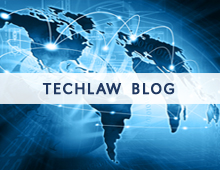While lots of bits and ink have been devoted to Apple Inc.’s well-publicized run-in with the Department of Justice over its role in a price-fixing conspiracy among e-book publishers, most of the media has not analyzed the array of private antitrust cases — mainly consumer class actions — brought against the iconic company. These typically allege that Apple’s closed ecosystem of iTunes, the iPod and iPhone are unlawful efforts to monopolize various media or hardware markets. After looking more closely at the merits of these various cases, I predicted in June that
the choice of a vertically integrated structure is unlikely to get Apple into antitrust trouble — either private or governmental, and whether in the United States or the EU — unless Tim Cook and company add some seriously bad acts to their competitive arsenal
Yesterday, a federal court of appeals (the Ninth Circuit in San Francisco) tossed one of the private antitrust class actions, which had challenged the lawfulness of the proprietary DRM technology Apple initially used for downloadable digital music, claiming the lack of interoperability inflated iTunes music prices. The court’s opinion concludes on procedural grounds that
under basic economic principles, increased competition — as Apple encountered in 2008 with the entrance of Amazon — generally lowers prices. See Leegin Creative Leather Prods. v. PSKS, Inc., 551 U.S. 877, 895 (2007); Barr Labs., Inc v. Abbott Labs., 978 F.2d 98, 109 (3d Cir. 1992). The fact that Apple continuously charged the same price for its music irrespective of the absence or presence of a competitor renders implausible [the plaintiffs’] conclusory assertion that Apple’s [DRM] software updates affected music prices.
I’m glad to have been right. More important, though, is one obvious point, which bears repeating: “On the pure antitrust merits, whether to pay off these class action plaintiffs is a decision Apple really should not have to make.” But as we say in the law, “deep pocket” defendants will always be put in that rather untenable position.
Note: Originally prepared for and reposted with permission of the Disruptive Competition Project.



